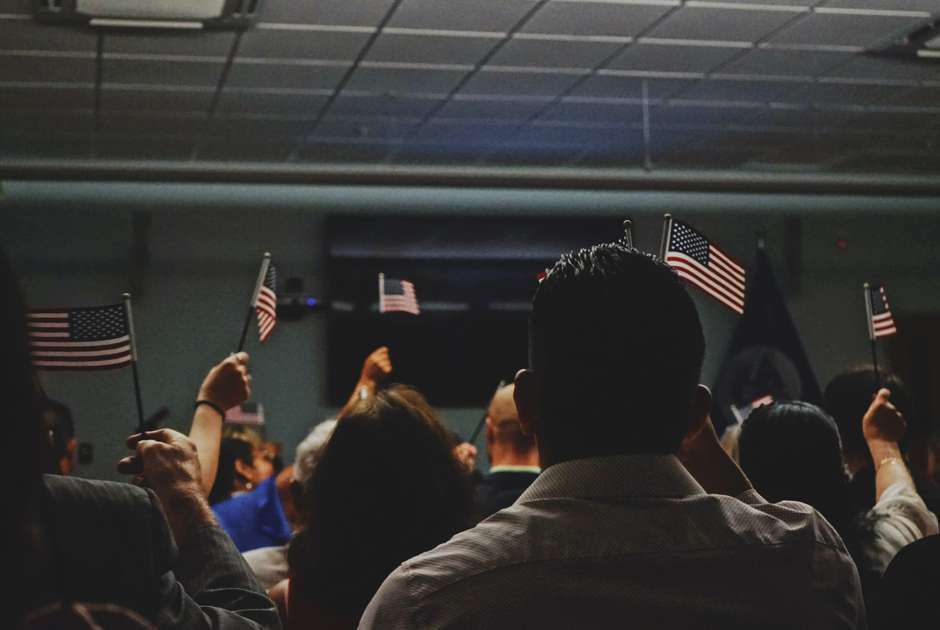White conservatives who believe that refugees will back the Republican Party become more likely to favor policies welcoming the new arrivals to the United States, according to recent research, while white liberal support for refugees falls when they learn the same information.
An article published in Social Science Quarterly in late November found that white conservatives tend to temper their opposition to refugee resettlement when given reasons to think those refugees will support the GOP, challenging the notion that right-leaning citizens’ often skeptical attitudes toward immigration stem mainly from racial prejudice. A survey of over 800 white Americans revealed that respondents on the right and left were sensitive to the political repercussions of admitting newcomers likely to vote Republican, though liberals overall were more accepting of immigrants regardless of their anticipated political views.
Richard Hanania, the author of the article and president of the Center for the Study of Partisanship and Ideology, said that while differing levels of racial prejudice still play a part in explaining the partisan split on refugees and immigration policy more broadly, views about how newcomers affect partisan politics appear to have a stronger impact on the divergence.
“Although how white Americans view migrants and their likely impact on the country can be determined by race, partisanship appears to play a larger and more direct role,” Hanania said in a blog post on his research.
The gap in support for immigration between subgroups who self-identified as “very liberal” and “very conservative” shrank by almost two-thirds when the respective sides learned that a hypothetical new wave of refugees would vote Republican instead of Democrat, according to Hanania. However, liberal support for Republican-voting refugees didn’t fall to the same degree that conservative support for them rose.
Hanania’s project set out to better understand the roots of the partisan divide on refugee resettlement policy specifically and immigration policy in general. While scholars are often tempted to boil conservative attitudes about immigration down to racism, Hanania said, he wanted to probe the possibility that these stances stem from a different source.
“There’s a lot of belief [in political science and psychology] that white racial attitudes drive attitudes toward immigration, and I think there’s good evidence of that,” Hanania told The Academic Times. “But the question is [about] the extent to which opposition to immigration among conservatives, and Republicans in particular, might be driven by some kind of rational assessment of the electoral implications of immigration.”
His research found strong survey evidence to back the hypothesis that conservatives’ opposition to immigration owes in large part to their concern for the future of the Republican Party.
Survey respondents were asked how open they would be to accepting a group of refugees into the swing state of Florida, with the newcomers’ characteristics varied along the dimensions of racial identity, voting behavior and skill level.
Conservatives said they favored highly skilled refugees, Hanania said, presumably because they were more likely to “pull their own weight” economically and wouldn’t burden social services. Liberal responses weren’t affected by the economic prospects of the newcomers.
Race itself didn’t significantly impact the attitudes of either partisan group, according to Hanania, as respondents weren’t more likely to favor refugees from Ukraine, who were viewed as white, over those from Venezuela, who were viewed as nonwhite, on that basis.
Republicans did predict that Ukrainian refugees rather than their Venezuelan counterparts would assimilate better, have a more positive net impact on the economy and vote Republican, regardless of the information they were given in the survey. Hanania said it isn’t clear whether these results are evidence of racism or could come from other factors, including “ideas about previous waves of Latin American immigrants.”
“If racial attitudes matter, they’re sort of an indirect effect” on conservative attitudes toward refugees, he added. “Partisanship is much clearer, much more direct, and [has] a much bigger effect on people’s willingness to let the refugees in.”
While there’s still strong evidence showing that liberals overall are more accepting of immigrants than conservatives are, Hanania said that his findings suggest Republican attitudes could change if they stop viewing newcomers as a boon to their partisan rivals.
“There’s this idea that there was this major Hispanic shift toward Trump in the last election,” he said. “I think it’s very easy to exaggerate that … but it was real, and it was pretty big. We’ll see — maybe Republicans will become less anti-immigration as a result.”
The article, “Cui Bono? Partisanship and Attitudes toward Refugees” was published on Nov. 30 in Social Science Quarterly and authored by Richard Hanania, Columbia University.

RushilTheWeaboo on January 24th, 2021 at 15:35 UTC »
Why am I only seeing Behavioral pattern about Conservatives and Democrats.
Like since when did Science just dissolved into this. Can't you guys show something actually cool?
Infamous-Mission-234 on January 24th, 2021 at 14:42 UTC »
For those crying foul on confusion with the title:.
https://cspicenter.org/partisanship-and-support-for-immigration/
It has graphs so you can visualize the change along with more details.
MantisPRIME on January 24th, 2021 at 14:21 UTC »
I wonder how they accounted for pre-conceived biases in the survey design? In the abstract, these hypotheses make sense, but if one were to guess that all naturalized voters voted for Democrats, they would be right two times out of three. Not surprising in the slightest, given the sentiment either party has on the subject of immigration, but I digress. If self-identitified liberals were aware of this fact, they could probably rationalize any pro-immigrant sentiment, regardless of the hypothetical questions.
Now, there's also the issue of naturalized citizens not participating in elections at as high a rate as natural citizens, but that's probably an unrelated issue.